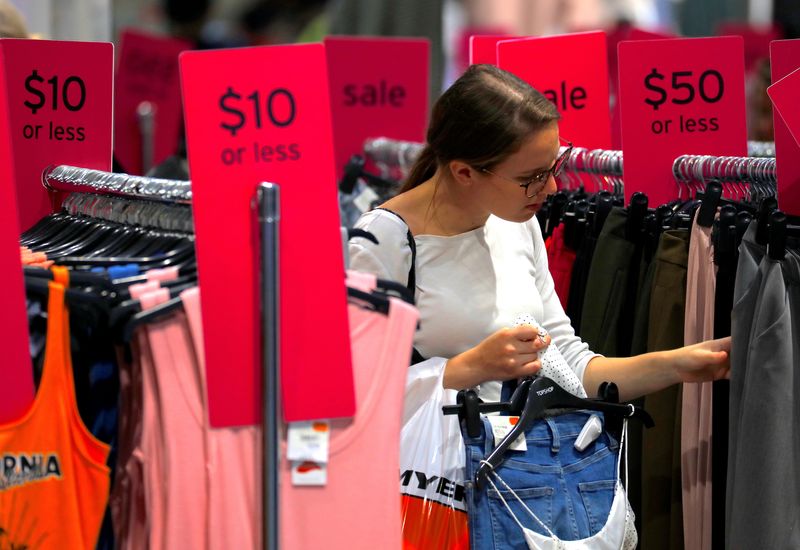SYDNEY (Reuters) -A measure of Australian consumer sentiment fell in May after a surprise hike in interest rates by the Reserve Bank of Australia (RBA) and a "mildly disappointing" federal budget clouded the outlook for family finances and the economy.
The Westpac-Melbourne Institute index of consumer sentiment out on Tuesday slid 7.9% in May from April, with the index falling to just above the levels seen in March, which recorded the lowest monthly reading since the COVID-19 outbreak in 2020.
"The two key developments over the last month have been the surprise decision by the Reserve Bank Board to lift the cash rate by a further 0.25% in May and the Federal Budget," Westpac chief economist Bill Evans said.
The index reading of 79.0 for May meant pessimists far outnumbered optimists.
The RBA earlier this month stunned markets with a rate rise rather than an extended pause as was widely expected by traders, saying inflation - sitting at near 30-year highs - was way too high and even higher rates might be needed to bring it to heel.
But Evans expects the RBA to leave rates on hold in June as it awaits more data on inflation and the economy.
"Our central view is that the weakness in the economy coupled with clear progress towards the (RBA's) inflation target will see the current level of the cash rate hold as the peak, but the risks remain evenly balanced," Evans said.
Australia's Labor government last week boasted the first budget surplus in 15 years, as strong jobs growth and bumper mining profits swelled its coffers, but it also announced billions in cost-of-living relief.
Some consumers may have had "unrealistic expectations" going into the budget with many expecting more support, Evans said.
Higher living costs meant consumers were holding off on buying a major household item, with the index dipping 0.4%.
Confidence in the outlook for house prices has surged, with the index up 10.7%, hitting the highest level since February 2022, while 70% of consumers expect mortgage rates to rise over the next 12 months.
